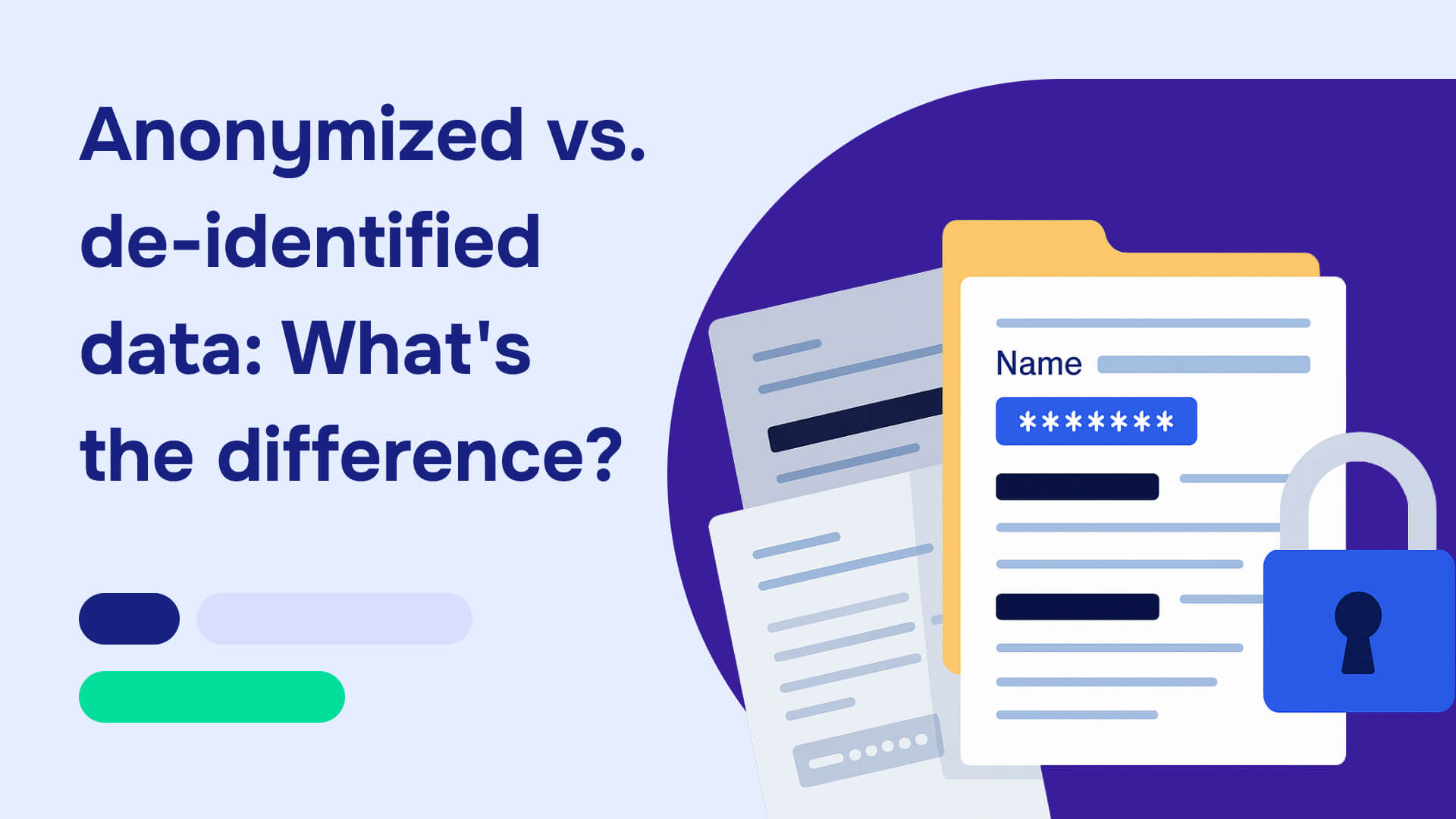Is your government agency securely redacting documents before making them public?
Juggling a mountain of documents and complicated compliance requirements creates significant difficulties for public servants looking to maintain information security while meeting transparency obligations.
Inadequate methods and difficult-to-use software tools have exacerbated the problem. Researchers at the University of Illinois found that thousands of publicly available documents, including FOIA requests, reveal personal details and confidential data due to improper redaction.
To prevent leaks like these and protect sensitive information, you need to know the right strategies and techniques to use. Keep reading to learn how government agencies can redact documents accurately and permanently with the most effective AI-powered redaction solution.
The top 15 cases when redaction is legally required for government agencies
From personal information to trade secrets, government agencies deal with a wide range of sensitive information that must be removed from documents. Proper redaction ensures that private data is safeguarded while allowing for the free flow of public records.
Here are the 15 cases when redaction is legally required:
- Freedom of Information Act (FOIA) requests: Government agencies must redact sensitive information before releasing FOIA documents to protect national security, law enforcement, and the personal privacy of both individuals and businesses.
- Medical records and health information: Under HIPAA, personal health information must be redacted when sharing medical records for non-treatment purposes. Improper redaction risks patient privacy and could lead to substantial penalties.
- Court documents and proceedings: Sensitive information like Social Security numbers, financial account numbers, names of minors, and personally identifiable information (PII) must be redacted in court filings, documents, and transcripts.
- Law enforcement records and investigations: Information that could compromise ongoing investigations, reveal confidential informants, or expose the privacy of individuals involved must be redacted.
- Trade secrets and confidential business information: In legal proceedings and document exchanges involving businesses, trade secrets and proprietary information are often redacted to protect the competitive advantage of the organizations involved.
- National security documents: Still-classified information must be redacted when declassifying or releasing documents to the public. Redaction failures could compromise defense strategies, intelligence activities, and the safety of individuals involved.
- Educational records: During legal proceedings, educational institutions may be required to disclose student information. Under FERPA, schools must redact personally identifiable information when releasing student records without consent.
- Banking and financial records: Personal financial information often needs to be redacted when records are shared in accordance with various privacy laws. Improper redaction could lead to privacy violations, identity theft, or financial fraud.
- Attorney-client privileged communications: In legal proceedings, privileged communications must be redacted when producing documents. This is required by common law and various statutes and procedural rules throughout the United States.
- Witness protection: Information that could reveal the identity or location of protected witnesses must be redacted in public court documents.
- Public records requests: Many states have laws allowing certain personal information of government employees (e.g., home addresses, phone numbers, dates of birth) to be redacted before releasing documents.
- Grand jury proceedings: Information presented to a grand jury may be redacted to protect witness privacy or maintain investigation secrecy.
- Discovery in civil cases: Sensitive information may be redacted from documents exchanged between parties before trial.
- Data breach notifications: When notifying affected individuals of a data breach, companies may need to redact certain information to protect privacy.
- Sealed criminal records: Some criminal case files may be fully or partially sealed and must be redacted if ordered by the court.
6 steps to implement effective redaction in government agencies
To avoid embarrassing redaction failures and achieve secure redaction for government data, follow these redaction best practices:
- Establish clear policies: Develop comprehensive guidelines for consistent redaction across departments. Your policies should clearly describe the target information for redaction and identify the employees responsible for making sure it’s done. This is essential for keeping everyone on the same page.
- Train staff: Ensure personnel understand legal requirements and technical aspects of redaction. Information security must be a part of the culture of your department. Conduct regular training sessions to guarantee that all employees understand how to properly and permanently redact information using your chosen redaction software.
- Use appropriate tools: Employ redaction software designed for government-level security and compliance. Make certain that the tool you select supports irreversible redaction, as some methods leave information partially exposed. Also, look for a platform with AI features that make it fast and easy to redact a high volume of documents.
- Maintain detailed logs: Record what was redacted, why, and by whom to provide accountability. This creates a clear paper trail that can be referenced in case of investigations. Provide clear reasoning for redactions to maintain public trust and transparency.
- Update criteria regularly: Laws, threats, and security needs evolve, and so should redaction criteria. Review and adjust redaction standards to stay compliant.
- Conduct audits: Regularly review redacted documents to guarantee that your processes are effective. Audits can uncover patterns of missed redactions or inconsistent applications across different teams, allowing you to continuously improve your information security practices.
Why Redactable is the most effective tool for government agencies
When it comes to government document handling, the stakes are high, impacting not just individual privacy but national security and can even be a matter of life and death. The myriad of laws and regulations protecting these documents is complex, but government offices are also under increasing pressure to make information accessible to the public. That’s why agencies require efficient, accurate, and compliant redaction processes.
Redactable is an innovative redaction solution providing automated redaction for government documents. Our AI-powered redaction tool is tailored specifically to the requirements of government offices and provides the following features:
- Compliance-focused design: Built to meet stringent government regulations, including FOIA and Privacy Act requirements.
- Customizable redaction rules: Easily adapt to agency-specific needs and evolving legal standards.
- Audit trail and logging: Comprehensive tracking of all redaction activities for accountability and transparency.
- Multi-level review system: Enables collaborative review processes to ensure thorough and accurate redactions.
- Secure cloud infrastructure: Offers top-tier data protection while allowing authorized access to redacted documents from anywhere online.
- Automated redaction verification: Helps catch potential missed sensitive information before document release.
- Integration capabilities: Smoothly works with existing government document management systems.
- Redaction justification feature: Easily attach explanations for each redaction, enhancing transparency.
Learn more about how Redactable can revolutionize your government agency's document redaction process by signing up for a free trial today.







